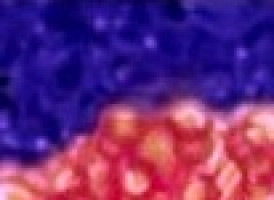
The drug eribulin, currently approved for the third-line treatment of breast cancer, may represent a new treatment option for paediatric patients with a type of cancer called sarcoma, according to results of preclinical studies presented here at the American Association for Cancer Research (AACR) special conference on Pediatric Cancer at the Crossroads: Translating Discovery Into Improved Outcomes meeting.
“The Pediatric Preclinical Testing Program (PPTP) is a National Cancer Institute (NCI)-funded, multi-institution team that identifies and prioritizes new agents in the adult oncology arena for testing in paediatric cancers,” said E. Anders Kolb, M.D., director of blood and bone marrow transplantation at the Nemours/Alfred I. duPont Hospital for Children in Wilmington, Del.
“The program previously identified eribulin as having activity in models of sarcoma and acute lymphoblastic leukaemia. We investigated eribulin at varying dose levels and schedules, and compared its efficacy with vincristine.”
Vincristine is an antimicrotuble agent that targets a cell’s ability to divide and is a standard drug used in many chemotherapy regimens because of its efficacy, Kolb explained.
“Eribulin is the same type of drug, but it may be more effective than vincristine in some malignancies and in tumours that have proven to be resistant to treatment with vincristine. The effect of eribulin on microtubules is different from vincristine and therefore, may provide new opportunities.
“We had previously published that eribulin is effective at what we would consider a standard dosing,” he added. “We now find eribulin to be effective across a range of dosing: The drug was highly effective at doses and schedules that achieve blood levels at or below those that are toxic in humans. These results give us confidence that eribulin will be effective across a wide range of dosing and sarcoma types.”
Kolb and colleagues used four mouse models of sarcoma and administered eribulin at 1 mg/kg, 0.5 mg/kg, or 0.25 mg/kg doses three times a day every four days, or 1 mg/kg given twice a day every four days, with cycles repeated at day 21.
The researchers found that eribulin was highly active in three of the four sarcoma models when given three times a day every four days, and complete response was achieved and maintained for up to 12 weeks in about 70 percent of the mice. In one mouse model, complete response was achieved and maintained even at the lowest dose administered.
The researchers also found that the 1 mg/kg dose given twice per day every four days—the schedule which most closely reflects a clinical schedule—only marginally decreased the effectiveness of eribulin. In comparison with eribulin, vincristine failed to induce complete responses and was ineffective in two of the four sarcoma types tested.
Based on these preclinical results, the Children’s Oncology Group and the Cancer Therapy Evaluation Program at the NCI are planning a phase II trial of the drug in children with sarcoma, according to Kolb. “This is an example of how having access to these drugs through PPTP and having well collated results help clinicians prioritize new agents for clinical testing in paediatric cancers.”
Source: AACR
The World Cancer Declaration recognises that to make major reductions in premature deaths, innovative education and training opportunities for healthcare workers in all disciplines of cancer control need to improve significantly.
ecancer plays a critical part in improving access to education for medical professionals.
Every day we help doctors, nurses, patients and their advocates to further their knowledge and improve the quality of care. Please make a donation to support our ongoing work.
Thank you for your support.